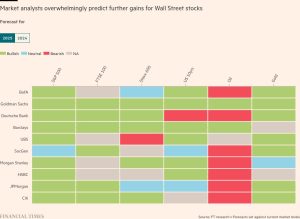Maybe UK pension funds should be forced to invest in UK assets

Unlock the Editor’s Digest for free
Roula Khalaf, Editor of the FT, selects her favourite stories in this weekly newsletter.
Financial incentives to boost retirement savings exist to serve two principal policy goals. First, they reduce savers’ reliance on social welfare programmes in old age, easing the demographic burden on future taxpayers and enhancing fiscal sustainability. Second, they support investment, boosting economic growth and living standards.
The magnitude of tax breaks afforded by the UK government in pursuit of these goals is large. Pension contributions and investment returns are tax-exempt, but pensions in payment are not. HMRC calculates that total net pension income tax and national insurance contribution relief will come to £52bn in the 2023-24 year — not far shy of the UK’s spending on defence.
The UK is far from alone in offering tax relief to pension savings. In fact, every OECD country offers its own version of these reliefs. But the nature of incentives differs meaningfully. For example, Denmark — like the UK — tax-exempts pension contributions and taxes pensions in payment. It also applies an annual levy on investment returns that has brought in vast sums. Australia, meanwhile, taxes both pension contributions and investment earnings. The UK system looks generous. And as an assiduous pension saver, I am not complaining.
As far as encouraging long-term saving goes, pension tax breaks in the UK have been hugely successful, particularly among higher and additional rate taxpayers. This may help explain why Britain ranks third in the world for pension assets, with about £3tn invested across public and private markets, according to the Pensions Policy Institute.
But in supporting domestic investment and economic growth, they are proving increasingly dud. Despite de-risking, a stable 70 per cent share of old defined benefit schemes are invested in UK assets such as bonds, equities and property. Newer defined contribution schemes that are set to replace them have no such home bias. According to the Department for Work and Pensions, just over half of DC assets were invested domestically in 2012. But by 2023 this share had shrunk to just over a fifth.
This largely reflects default plans shifting their listed equity allocations towards an index-based global market capitalisation approach. And so government increasingly finds itself providing tax relief to higher-income households sending their savings overseas. This was not the plan.
The multi-decade allocation out of UK equities has seen a doom loop take hold. According to New Financial, pension allocation to UK stocks has fallen sharply from just over half of all assets 25 years ago to a mere 4 per cent at the end of 2023. This shift has drained the market of liquidity, and the economy of a source of risk capital. Stocks have cheapened sufficiently for increasing numbers of them to be taken private. Once delisted they have often been loaded with debt and run for cash. Moreover, the move has diminished London as a capital markets venue.
Government has so far avoided mandating minimum domestic investment levels. But there was a government consultation on the issue in September, and the interim report of a Pensions Investment Review commissioned by chancellor Rachel Reeves refused to rule it out.
Unsurprisingly, pension investors are alarmed. Over the past two decades ditching UK equities in favour of global stocks has been wildly helpful in increasing their investment returns. Forcing them to invest in British assets looks potentially risky even if some like BlackRock, JPMorgan and Amundi now expect UK stocks to outperform global peers over the medium term.
Pension savers complain that boosting domestic investment is not their job. And they are right. But the fact remains that they receive billions of tax relief each year. One of the purposes of this relief is to support domestic investment. In the absence of this investment there is a case for reviewing whether the cost of relief is appropriately sized to the benefits it delivers to the country. The UK could follow Australia, both applying tax to pension fund investment gains and providing tax advantages for domestic investment. Australian superannuation fund allocations skew hugely to domestic stocks as a result.
While it may sound heavy-handed, I would far prefer the government to mandate a minimum domestic allocation over such a dismantling of current pension tax reliefs. Such relief confers substantial benefits upon pension savers. Unless schemes recognise the strings that have always been attached, it is not unreasonable for government to make them clear in law.
#pension #funds #forced #invest #assets




